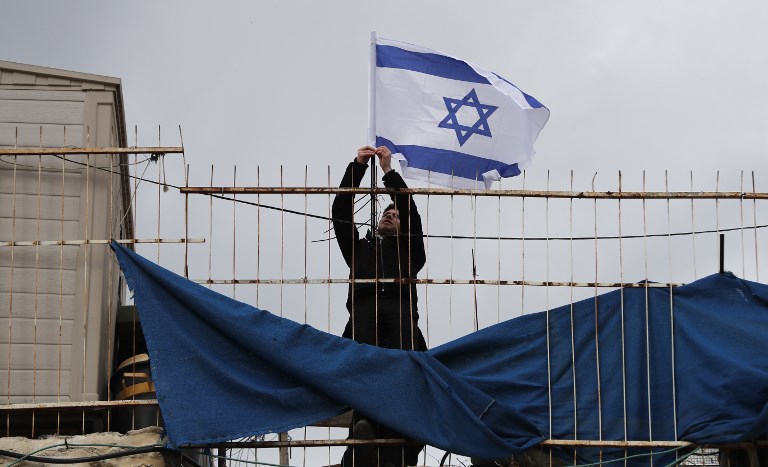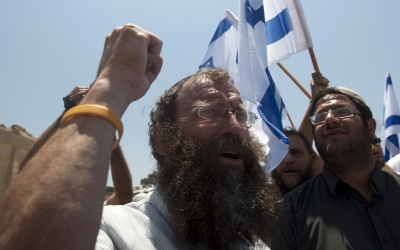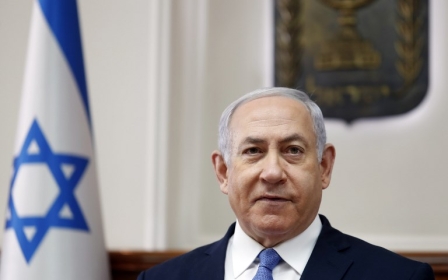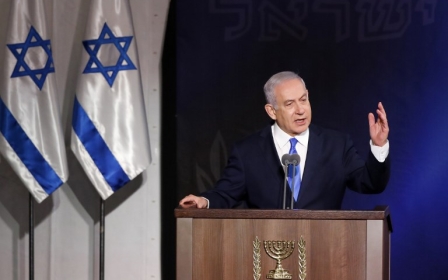Courtroom drama exposes the paradox of Israel's claim to be Jewish and democratic
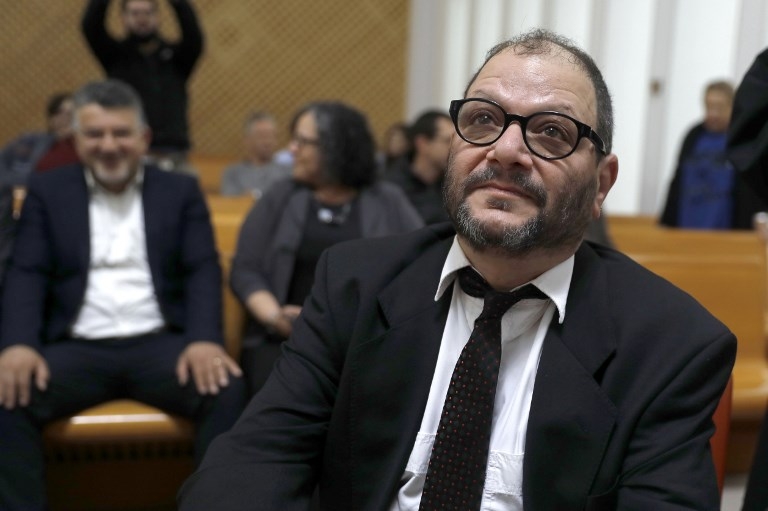
This has become the routine prior to elections in Israel: the Central Elections Committee, comprising legislators from various Knesset factions, disqualifies registered Arab lists or candidates, decisions that are then typically overturned by the Supreme Court on appeal.
These disqualifications are predicated on Israeli law, which specifies that a candidate or list that negates the existence of Israel as a democratic and Jewish state, or incites people to racism, cannot run. The bitter irony is that this clause, originally drafted to keep American-Israeli Orthodox rabbi Meir Kahane out, is now being wielded by his successors in an attempt to prevent Kahane’s victims, Arab parties, from running. (Kahane's party, of which he was the sole representative in the Knesset in the mid-1980s, was eventually banned for being "racist" and "anti-democratic".)
This time around it was political scientist Ofer Cassif, on the Hadash-Taal list, who was disqualified by the Central Elections Committee, along with the Raam-Balad list. The Supreme Court session that heard Cassif's appeal inadvertently became a lesson on the paradox underlying the definition of Israel as Jewish and democratic.
Law of Return
The petition against Cassif was brought by Yisrael Beiteinu over statements in which Cassif compared Israel to the Nazi regime. Yisrael Beiteinu leader Avigdor Lieberman's attorney, Yoav Mani, justified the disqualification with a metaphor, noting that if no one guards the door, anyone can enter the room, rendering the inside and outside the same.
Stay informed with MEE's newsletters
Sign up to get the latest alerts, insights and analysis, starting with Turkey Unpacked
"Evil never enters with loud clanging," Mani said, "but rather quietly. The discourse of 'a state of all its citizens' is permeating the public discussion because … you have enabled it." This, from the counsel for a politician who seeks the expulsion of Arab citizens of Israel and has said that disloyal Arabs should be beheaded.
To preserve our democratic facade, we will allow the Arabs to play the parliamentary game with a non-Zionist agenda - but only so long as they have no real chance of actualising that agenda
Lawyer Hassan Jabareen, the director of the Adalah legal centre who is aiding Cassif's appeal, noted that world-renowned experts on the study of fascism have also drawn comparisons between the Israeli reality and dynamics in Nazi Germany.
The discussion rapidly got to the inherent contradiction between Jewish and democratic. Justice Noam Sohlberg, a settler from Alon Shvut, persisted in wanting to hear from Cassif as to what "minimal kernel" of the definition of Israel as a Jewish state he supports. The Law of Return, which allows Jews to come to Israel and become citizens, became the litmus test.
Jabareen clarified that Cassif does not support the Law of Return, and inquired whether the Supreme Court is supposed to forbid anyone who does not support it from running for the Knesset. "You want to turn him into the Zionist left," he said sarcastically, noting by that logic, non-Zionist Haredis would also have to be denied the right to run.
Demographic war
The discussion on the Law of Return was fascinating. It was the first time I heard an establishment voice - the court - admit openly that the law was designed to ensure a Jewish majority in Israel, as opposed to the law's traditional rationale that Israel was created as a "sanctuary state" for the Jewish people.
A Jewish majority, evidently, is a moral goal in itself. According to Mani, anyone challenging this perspective should remain outside the Knesset - for if Israel wants to be both democratic and Jewish it must ensure a Jewish majority, by any means necessary. In other words, the demographic war against Arab citizens becomes part of the state's raison d'etre, and anyone who challenges it is marked as an enemy of the state.
According to Justice Menachem Mazuz, however, for the threat to become real there must be a programme with real prospects for success, which is not the case for Arab members of the Knesset.
If you stop and think about that, it is a truly astonishing argument. The real meaning is this: to preserve our democratic facade, we will allow the Arabs to play the parliamentary game with a non-Zionist agenda - but only so long as they have no real chance of actualising that agenda.
This is precisely the rationale that allows Balad to run its slate for the Knesset with a platform of a "state of all its citizens," denying exclusive recognition for Jewish nationalism in Israel, because the Knesset presidium will forbid the party from even submitting for deliberation any bill calling for a state of all its citizens.
Recurring humiliation
There is something very frustrating about these discussions. The Supreme Court's convoluted reasoning on the arguments of the far-right - which are more coherent than the court's own position, thanks to the simple fact that they don't even try to appear democratic - is highly disturbing from a civil standpoint. It is very troubling that Arab representatives are made to undergo this sort of humiliation each time they wish to campaign for seats in the Knesset.
Yet, there is still value in these deliberations, inasmuch as they expose another little bit of this inherent paradox. Time after time, we see that it is sufficient to scratch the surface just a little, in order to see the notion of "Zionist and democratic" completely implode.
To further highlight the absurdity, the court next addressed a demand by far-right Kahanists, Itamar Ben-Gvir and Michael Ben-Ari, that the Hadash-Taal list be disqualified from running. Ben-Gvir began: "If it looks like support for a terrorist organisation and sounds like support for a terrorist organisation, it's support for a terrorist organisation!" That was the point at which my strength gave out and I left the courtroom.
The views expressed in this article belong to the author and do not necessarily reflect the editorial policy of Middle East Eye.
Middle East Eye delivers independent and unrivalled coverage and analysis of the Middle East, North Africa and beyond. To learn more about republishing this content and the associated fees, please fill out this form. More about MEE can be found here.



